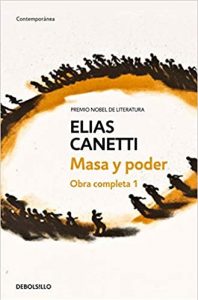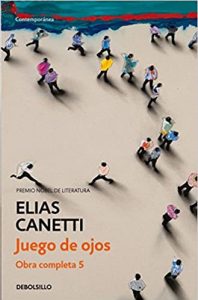In a wandering existence, marked by different circumstances throughout his life, Elias Canetti he developed a bibliography that accompanied this variable to travel through a troubled world that in the twentieth century gave birth to the first great world conflicts.
Although his dedication to fiction was closed with his only novel "Auto de fe" published at the age of thirty (without forgetting his plays), this writer who made the homeland of each place where he lived, composed great plays and he wrote great books of the thinker determined to seek answers from a global vision that, although he established his nationality in England, happened to be that of a chronicler of the world of his time, nothing less than a twentieth century that gave entry to a millennium between the utopia of modernity and the dystopia of ideologies and emerging global capitalism.
To enter Canetti is to enjoy an omniscient narrator, privileged in his wandering around an avid history of writers capable of transmitting the clearly human between the political and social, that is, what really transcends the future to understand the vision of the individual and the collective in the face of a noisy advance of times .
Every writer focused on the test or in the travel book he is a writer of the underlying reality, a tracker of what moves everything, a creative and creative vanguard from the aseptic perspective of the critical human and capable of finding a synthesis between the extremes. And nothing better than to reflect that synthesis in great aphorisms that the author left compiled for posterity in many of his books.
Top 3 recommended books by Elias Canetti
Auto of faith
Canetti set his fictional narrative approach around a character as unique as Peter Kien, whose library became his vital leitmotif, an unrealizable goal and a beautiful utopia towards an impossible knowledge, the most beautiful metaphor for a poet's soul like Kien's, emerged from the ghetto.
But in a certain way Canetti is also critical of Kien himself, because from that accumulation of knowledge, in that cultural and ideological ostentation, the monsters of intellectual superiority that sometimes lies in the worst of the human being, even in the self destruction.
Because Kien loves his library, above all, but in turn his mind flooded by so much knowledge ends up moving away from the most real world, Teresa being the one who tries to attach him to the earth unsuccessfully.
Like the library of Alexandria, everything can end up being burned, only this time the matter was seen to come from a remote and gloomy dream of the owner of such an extensive collection of knowledge ...
Mass and power
That the mass is the seed of the solution and of the tragedy of the human is something evident. In the summary contradiction that only united can an enemy be defeated and that when human beings act together they can indulge in the most ominous actions, we discover that idea of the mass subjected to power.
The human is everything, good and bad, love and hate, solidarity and violence. This essay delves into the social movement always as a mass, since there is no other way to mobilize the collective.
The dangers inherent in this general nature are very diverse and the use of that pernicious version of the human under the mass can be used by power for any ominous end justified in necessity, obedience or simple fear.
Eye game
The autobiographical acquires in Canetti's vision a notion of the character made narrator, of the will to see a life given to a meridian mission to know, discern and finally contribute that synthesis that is to live.
A will to contribute the most unrelated notion from the consciousness deployed to the open grave about a world in crisis. A) Yes, Canetti it is learning for when the bad times come, discovering the most ominous indeological sins to keep them at bay in their permanent dormancy.
In this volume that closes Canetti's extensive autobiographical narrative we find in my opinion those good synthesis that reviews the axioms and the premises of all thought that can simply be subjected to the worst or the best of the human being, under the guise of the justification of the moment .



